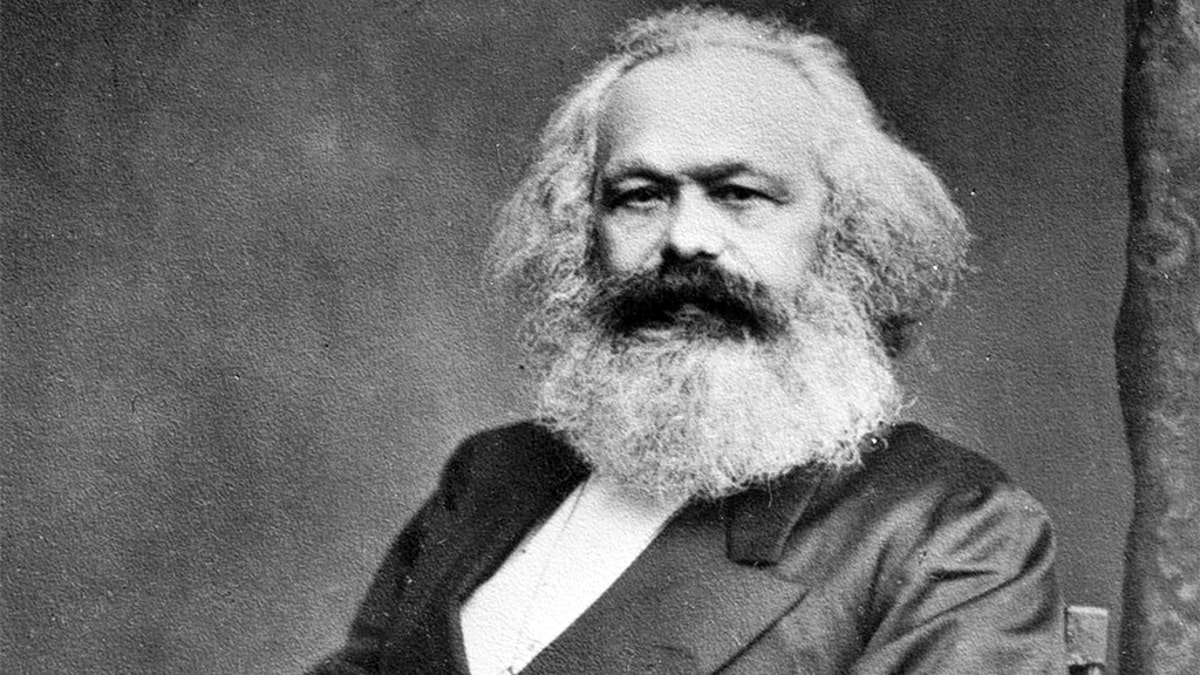Marco Rubio: Socialism fails and destroys lives
Florida Republican torches Rep. Alexandria Ocasio-Cortez's remarks about capitalism and sheds light on the matter on 'Hannity.'
The New York Times published a new episode of "The Ezra Klein Show" Tuesday which featured a socialist academic arguing for "universal inheritance, worker ownership and other policies to close the wealth gap."
In the intro to the episode, titled "Thomas Pikkety’s Case for ‘Participatory Socialism,’" Klein said, "Piketty thinks that we can have much more radical policies than most economists or politicians buy into that can really build a far more equal world. I mean, we’re talking here a universal minimum inheritance of around $150,000 per person, worker control over the boards of corporations, massive levels of wealth taxation."
Klein added, "He’s really putting forward solutions proportionate to the size of the inequality problem."
During the interview, Pikitty admitted that one of the most striking things he found was that "there’s been a long-run movement toward more equality, both of income and wealth."

Karl Marx (1818-1883), philosopher and German politician. (Photo by Roger Viollet Collection/Getty Images)
But he said most of the movement toward equality of wealth occurred during World War I and World War II.
"If you look at the distribution of wealth today in the United States or in Europe, what’s really striking is that the bottom 50 percent of the population basically owns nothing at all," Piketty said.
"The top 10 percent would own over 70 percent of total wealth in the US and around 60 percent in Europe." Pikkety said that this data "illustrates…we still have a lot of inequality."
Piketty contended that wealth (assets owned) is a better indicator of economic equality than income.
Klein commentated that wealth does not reflect pure market outcomes, but rather power dynamics in society. "It’s something I really appreciate in your thought, the attention to power in all directions. That wealth is a form of power, bargaining power, vis-à-vis society, as you put it," Klein told Piketty. "That it is often gained through power. It is not an automatic story of economic policy or markets or technology," Klein continued.
DEM BRAGS ABOUT AVOIDING HISTORIC GAS PRICES WITH EXPENSIVE ELECTRIC CAR

U.S. Rep. Alexandria Ocasio-Cortez (D-NY) is joined on stage by Sen. Bernie Sanders (I-VT) November 9, 2019 in Des Moines, Iowa. Both lawmakers have called themselves "democratic socialists." (Photo by Stephen Maturen/Getty Images)
During the episode, Piketty called for a "redistribution of inheritance" to finance a $250,000-$300,000 "lump-sum payment" from the government to "everybody in the generation."
"So just to clarify that, so you’re saying that every year the amount of money that is passed on an inheritance in, say, the U.S., is so large that if you divided it by the denominator of all the people, I guess, who would turn 25 that year in the U.S., you would get — it’s like $250,000, $300,000 per person?" asked Klein.
"Yeah, because this is exactly the average wealth of decedents in the U.S. today. So on average, decedents leave $250,000 — $300,000 per individual decedent every year. So it means that on average, because families have about two children on average, every child is going to receive on average $250,000, $300,000. Now, this is an average," Piketty.
Critics of policies like this argue that the money a person leaves when they die is not the government’s to take and that such a policy would disincentivize hard work and responsible saving.

An image of the entrance to the New York Times building in New York City NY. (DON EMMERT/AFP via Getty Images)
While Piketty called for the mandatory redistribution of wealth, he did acknowledge that "I’m certainly not saying that full equality is the ideal, because you can have very good reason why different people want to conduct different lives, make different choices."
"You may want to have some incentives. So even if you don’t have this problem of unequal political right and unequal political influence, it’s a matter of learning over history about the right institutions, the right level of equality and inequality," he said.
Piketty also mentioned a "federal organization of the world system." He said that "you need to have some form of democratic federalism to think about global regulation of capitalism, global taxation."
CLICK HERE TO GET THE FOX NEWS APP
He continued, "But we have to make federalism something like social federalism. It must be to the service of a better redistribution of wealth, of a more equitable distribution of income, of common progressive taxation of the multinationals, high wealth individuals."
Piketty predicted "enormous difficulties" if "the organization of our world economic system [is not transformed] in this more equitable manner," before concluding, "[I]f we don’t think of another form of organization for the world economic system, things can turn really bad."

